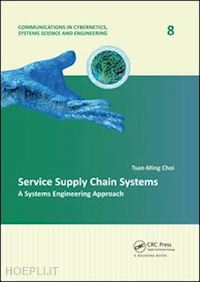Dr. Tsan-Ming Choi (Jason) is currently a Professor in Fashion Business at The Hong Kong Polytechnic University and has been activeas an Associate Professorat The Hong Kong Polytechnic Universityuntil June 2014. Over the past few years, he has actively participated in a variety of research projects on supply chain management and applied optimization. He has authored/edited ten books and guest-edited twelve special issues for various leading journals on related topics, and has published over 100 papers in peer-refereed academic journals such as Annals of Operations Research, Automatica, Computers and Operations Research, Decision Support Systems, European Journal of Operational Research, IEEE Transactions on Automatic Control, IEEE Transactions on Automation Science and Engineering, IEEE Transactions on Industrial Informatics, IEEE Transactions on Systems, Man, and Cybernetics (Parts A, B, C; Systems), International Journal of Production Economics, International Journal of Production Research, Journal of the Operational Research Society, Omega, Production and Operations Management, Service Science (INFORMS Journal), Supply Chain Management, Textile Research Journal, Tourism Management, Transportation Research, etc. He is currently an area editor/associate editor/guest editor of Annals of Operations Research, Asia-Pacific Journal of Operational Research, Decision Sciences, Decision Support Systems, European Management Journal, IEEE Transactions on Systems, Man, and Cybernetics - Systems, Information Sciences, Journal of Fashion Marketing and Management, Journal of the Operational Research Society, Production and Operations Management, and various other operations management and information systems journals. He is also an executive committee member of professional organizations such as IEEE-SMC (HK) and POMS (HK). He received the President's Award for Excellent Achievement of The Hong Kong Polytechnic University in November, 2008 (the most prestigious award for a faculty member at the university level). He is a member of various internationally renowned professional organizations such as IEEE, INFORMS, ITAA, and POMS.











